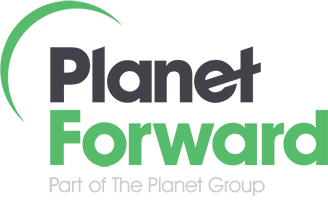As we find ourselves entering a new year after what has been a rollercoaster 12 months, taking the time for self-reflection is a healthy practice.
This year has been a unique year in many ways. But a fact perhaps overlooked is that in the workplace today, there are four generations represented and working together for the first time: Baby Boomers, Gen X, Millennials, and Gen Z. What does this mean to you, your team, and your employer?
Diversity and Unconscious Bias
Diversity encompasses many different characteristics, truly all the ways we are unique. Certainly, race, religion, gender orientation, ethnicity, and sexual orientation are foremost in mind for many people. There has also been a strong lens placed on these attributes recently, urging us to reexamine our thoughts and words. Ultimately, the goal is to understand our differences and – especially in the workplace – not let them get in the way of a productive and respectful environment.
That’s challenging, for sure. If you live in the U.S., you already know the most common stereotypes. They are woven into our culture. Comedians play on them. Advertisements use them. TV and movies tuck them into every corner. Unless you are really on top of it, these stereotypes can seep into your world view.
Eyeglasses are a good metaphor. If you wear glasses or even sunglasses, you know that every so often you take a hard look at the lenses and realize just how dirty they are. So, you clean them off and the world is a clearer and brighter place. You weren’t bumping into walls before but now your sight is more accurate.
Unconscious bias works in the same way. Living in this society, the cultural “dust” accumulates and can obscure reality. Whether you believe these stereotypes or not, they can still get in the way.
Generational Bias
“Millennials are slackers.” “Boomers are technically challenged.” “Gen X’rs demand work-life balance.” “Gen Z’rs only communicate via text.” You’ve heard these comments, maybe even thought them yourself. But are they true?
Sometimes but never always. Stereotypes are mental shortcuts. They make it easier to process all the information we’re hit with. The problem is we often keep the information that fits the stereotype and jettison the rest.
While most people will work at debunking stereotypes, generational biases seem to skip scrutiny. “It is what it is” is the typical response. An older employee forgets to unmute on Zoom and everyone – sometimes even the employee – gets a little dig in, kidding them about their lack of tech know-how. In truth, most Baby Boomers and Gen X’rs have had to adapt and learn more technology in the past 30 years than younger employees have ever experienced. But the stereotype persists.
Intention versus Impact
The problem with unconscious bias is that it’s, well, unconscious. When it does slip out, and the speaker is called on it, you’ll often hear, “But I didn’t mean it!” This is the difference between intention and impact. Even when we don’t intend harm the impact can still be negative. So, does that mean you’re “guilty?” Only if you refuse to learn from the experience.
Managing diversity means being open to learning and self-examination. It means using your people skills to increase your understanding. So, when that light-hearted dig comes out in a team meeting and your coworker winces, follow up and find out what happened. “I noticed the look on your face when I kidded you about your texting skills. Did I hit a nerve? I didn’t intend to hurt but I think the impact was different.”
Likewise, when you’re on the receiving end of the offensive remark, make a note and find private time with the person to explain the impact of their words.
Take This Time to Reflect
At the beginning of 2022, do a little self-reflection. Begin the process of challenging your perceptions and biases. Ask yourself, do I have empathy at work? Do I put myself in other’s shoes? Am I a good listener, or do I talk more than I listen? When things go wrong, do I make them right again?
Diverse perspectives and experiences are the lifeblood of success in any organization. Every person has value; every perspective provides fresh insight. Self-reflection is the start of the larger, imperative initiative of Diversity, Equity, and Inclusion. In 2022, let it start with you!
Photo credit: Canva
by Jenny Murino-Schultz, Senior Director of Sales, Planet Forward

